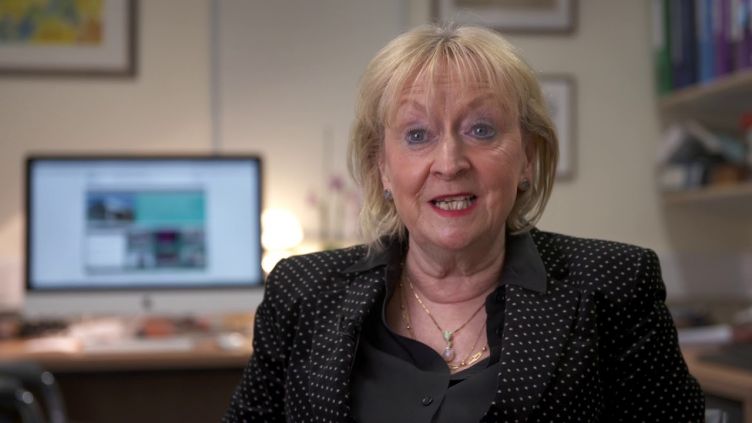As part of World AlzheimerŌĆÖs Month, we're shining a spotlight on some of our dementia research. The Neuroscience Institute uses a multidisciplinary research approach to carry out research into many aspects of dementia, from developing new models of disease using cells taken from patients with Alzheimer's to new diagnostic testing and helping people live full lives with dementia.
We have an extremely active cross-faculty profile of highly impactful dementia research within the Neuroscience Institute and associated centres of excellence such as the NIHR-funded ║¼ą▀▓▌┤½├Į Biomedical Research Centre (NIHR-BRC). Dementia research in ║¼ą▀▓▌┤½├Į spans from preclinical work using novel stem-cell based model systems to AI-supported innovative approaches to facilitate the early diagnosis of dementia in the community
Professor Oliver Bandmann
Co-Director of the Neuroscience Institute at the University of ║¼ą▀▓▌┤½├Į
Understanding dementia
Worldwide, at least 50 million people are believed to be living with the disease or other forms of dementia.
The term dementia refers to a group of different brain disorders that trigger a loss of brain function. It is not a specific disease but rather a term for a group of symptoms that affect cognitive abilities, memory, thinking, and behaviour. These conditions are all usually progressive, severe and terminal. There is currently no cure.
Alzheimer's disease is the most common type of dementia. It is a progressive and irreversible neurodegenerative disorder that primarily affects memory and cognitive functions.
║¼ą▀▓▌┤½├ĮŌĆÖs PET-MRI facility
The ║¼ą▀▓▌┤½├Į PET-MRI facility is the UKŌĆÖs 8th and YorkshireŌĆÖs only PET-MRI facility.
It is set in a purpose built state-of-the-art facility that is attached to the existing University of ║¼ą▀▓▌┤½├Į MRI unit at the Royal Hallamshire Hospital.
The ║¼ą▀▓▌┤½├Į PET-MRI scanner provides unprecedented views of the inside of the human body by combining the power of both MRI and PET images in a single scan. It helps our scientists and medics to tackle some of the most devastating diseases affecting millions of people.
Award-winning AI tool to help doctors assess the early signs of dementia
In July 2024, researchers from the University of ║¼ą▀▓▌┤½├Į, Devices for Dignity - the National Institute for Health and Care Research (NIHR) HealthTech Research Centre in Long term Conditions, the NIHR ║¼ą▀▓▌┤½├Į Biomedical Research Centre, industry partner Therapy Box and the ║¼ą▀▓▌┤½├Į Israac Somali Community Centre were awarded the Made with Patients Equality, Diversity and Inclusivity award.
The award was given in recognition of their collaborative work with ethnic minority groups to ensure accuracy of the CognoSpeak system in detecting early signs of cognitive decline in people who do not have English as their first language.
could help patients start treatments sooner and reduce the burden on dementia assessment services by freeing up valuable specialist time, improving access to care and aiding earlier diagnosis
Find out more about CognoSpeak
Understanding the underlying mechanisms of dementia
Our pre-clinical research is investigating the underlying biological mechanisms leading to dementia. Gaining a better understanding of the disease is pivotal to be able to identify new therapeutic targets and devise new therapeutic interventions.
Researchers specialise in in vitro and in vivo experimental models of the disease as well as sophisticated multi-modal imaging and neural recording techniques.
Our facilities can measure brain function from single cell (2-photon microscopy) up to whole brain (Magnetic resonance imaging) to provide accurate readouts of disease progression and test the effect of new therapies.
Bringing together researchers from the School of Medicine and Population Health, the School of Psychology, our researchers are working to understand the progression of the disease and test the effect of new therapies.
Find out more about our pre-clinical research
Accurate and early detection of all types of dementia to improve treatments for patients
Our research involves patients living with various forms of cognitive impairment. We undertake observational studies to understand what causes disease and predict prognosis. Our researchers investigate new diagnostic tests - such as analysis of speech, neuroimaging, EEG - and test new medications or treatments.
We work in collaboration with Patient and Public Involvement groups including the South Yorkshire Research Advisory Group for People with Dementia.
Through our partnership with the at the Royal Hallamshire Hospital we work with patients on medication studies. We also run a memory clinic that recruits patients.
Find out more about our clinical research
Applying engineering and computer science to dementia research
We are advancing technology to develop devices that can benefit people with dementia - particularly in their own homes.
WeŌĆÖre collaborating with researchers across music, psychology and engineering, to investigate how we can harness emerging technologies to boost opportunities for older adults living with dementia and their carers to interact with music
Find out more about engineering and robotics in dementia research
We are using advanced computational methods including mathematical modelling, machine learning and artificial intelligence to progress dementia research.
Advanced computational methods and models allow scientists and clinicians to analyse complex clinical and biological data. This can lead to more accurate and efficient diagnosis for dementia and speeds up drug discovery.
║¼ą▀▓▌┤½├Į has a world-class computer science and engineering research community. Our researchers have extensive expertise in statistical methods, machine learning, artificial intelligence, mathematical/cognitive modelling and bioinformatics.
Find out more about our computational methods
If you are interested in our dementia research, get in touch at neuroscience@sheffield.ac.uk




